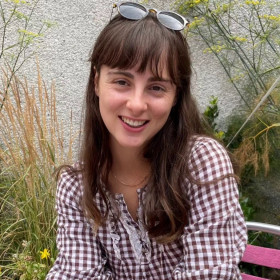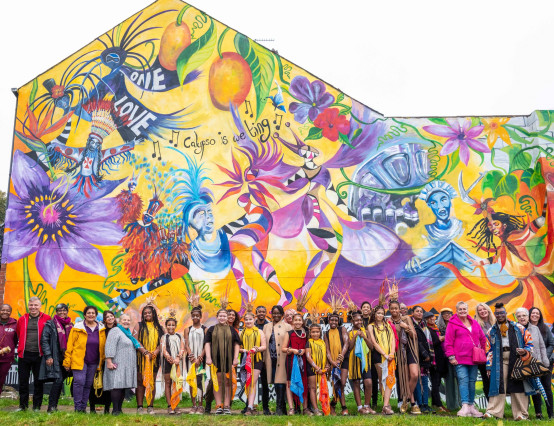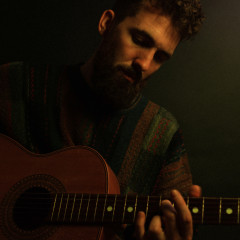Could you first introduce yourself to the reader?
My name’s Will Knox, I’m a singer-songwriter from the UK, currently based in Haarlem, Netherlands. I have my own artist project as Will Knox, and split my time between that and songwriting for other artists’ projects.
Tell us about your new song, ‘Pillow Scream.’
It’s a song about learning to be honest with yourself and other people. I have spent a lot of my life avoiding conflict and people pleasing to the extent where I would just lie about my feelings. This song is about trying to break that habit and learning to become my true self.
What message about mental health did you want to communicate in the song?
When I wrote Pillow Scream I was upset at myself for not being able to say what I wanted to someone because I feared their reaction. In fact, I ended up saying the opposite of what I felt just to make them happy. I couldn't speak my truth, be myself, and I realised that I was doing this all the time - whether in day-to-day life, relationships, or making music.
There’s a reason why I people pleased and avoided conflict, it was a kind of survival mode, a form of protection I learnt in the environment I was growing up in. My boundaries became fairly non-existent and that would create more problems. I didn’t understand the causes of this until I went to a therapist and various meetings that helped me realise why I’d learnt these behaviours. I've worked hard to break these habits and be more honest even if I risk upsetting or offending people along the way. I've found that the worst-case scenario I make up in my head rarely ever occurs, and most people respond rationally and empathetically when I've expressed my feelings sincerely.
What are the ups and downs of being a musician?
I love creating, expressing myself and helping others express their feelings. It’s incredibly rewarding and fulfilling. The downs are in the business side, there can be a lot of disappointments along the way, and it can be hard to keep picking yourself up. But I think that process can also make you a stronger person.
What are the highlights of your career to date?
I was a songwriter on Duncan Laurence’s Arcade which won Eurovision in 2019. Globally the song achieved a lot of success and I feel very grateful to have been a part of it. I have also won Buma awards (the PRS or ASCAP equivalent in the Netherlands) with Dotan for Hungry and with Son Mieux for Multicolor.
There were certainly some highlights in the process of writing my latest album, working with producer Ian Grimble, and collaborating with one of my songwriting heroes, Fink. I supported another hero of mine, Scott Matthews, on a run of shows in the Netherlands last year. And I recently produced my first full album for Néomi, 'Somebody’s Daughter' which just came out last week, so that feels like a milestone as I’d love to produce more.
Can you describe your biggest challenge so far in your career? How did you overcome it?
The biggest challenge felt like getting my foot in the door so I could focus on music full time. I wanted to work with a publisher so I could grow as a songwriter, but most publishers want you to have ‘pipeline’ (a song or songs that are going to generate income) before they can offer you an advance. So I wrote as much as I could, and kept collaborating with other artists and producers. The first commercially successful songs I had were with Dotan, and that resulted in meeting my current publisher, Pennies From Heaven, who I still work with today.
Have you noticed any changes in the industry? If so, what?
I think the lack of changes I’ve noticed are the most striking thing, gender and ethnic diversity within the industry hasn’t improved much in the last few years. I also think songwriters are still not being rewarded fairly.
I think the biggest change has been social media as it has helped a lot of artists be less reliant on radio, press and labels. It’s interesting to see how radio is declining in popularity, I wonder where that will be in 20 years when the current generation of TikTokkers and Spotify users haven’t grown up listening to radio in the same way as previous generations. AI is just starting, and already it’s creating a lot of interesting tools, as well as raising some serious ethical questions.
You’ve been granted the ability to send a message to 16-year-old you. What do you say?
Go to therapy.
Do you have any advice for young people interested in doing your kind of job?
I would suggest learning how to record yourself on Logic/Ableton/ProTools (some kind of DAW) as it’s really helpful if you can make your own demos without relying too much on other people for the basics. Learning piano (or guitar) is also very useful for songwriting sessions, but piano is obviously the easiest way to input midi into your productions so that is worth learning even if you can already play something like guitar.









0 Comments